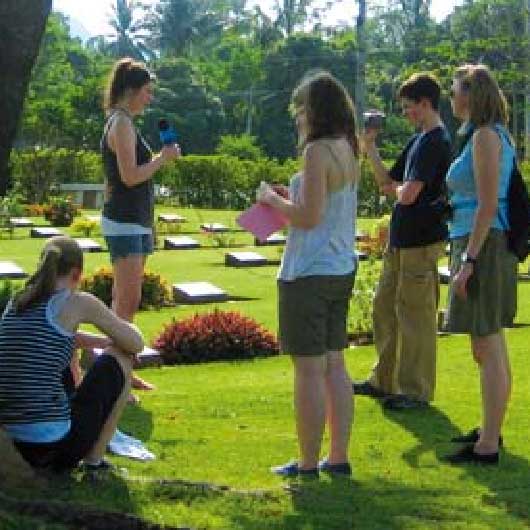
A strikingly original project using social and participative media engages young people in history, citizenship and issues relating to 20th- century conflict. Dan Phillips explains.
Increasingly young people are turning to the virtual world to make new friends, communicate with their peers and learn more about the world around them. The challenge that schools currently face is how to use this technology, and the behaviours and processes it develops, to assist learning.
A major component of the Imperial War Museum’s Their Past Your Future project is an innovative series of educational and commemorative visits for young people.
The visits aim to explore the impact of the 20th century, from a variety of perspectives, by immersing the students in the history and culture of a place. This involves site visits, meetings with eyewitnesses, use of primary sources from museums, libraries and archives, and participation in cultural and commemorative events, as well as more ‘usual’ tourist activities.
Independent evaluation has given us strong evidence that the visits have always been very successful in terms of the impact on individual students (both in terms of knowledge and understanding, and also in promoting creativity, learning new skills, informing values and increasing group working) and with participating teachers. By teaming up with Radiowaves, a specialist website that allows young people to use social media within a safe and trusted educational platform, we have been able to enhance further the impact of these visits on pupils’ learning in new and unexpected ways, and give an added online dimension to the visits which has made them even more successful. Radiowaves works with over 700 schools across the UK, and some across the world, and has considerable expertise in effective ways of using social media for learning, and we have learnt a lot in turn from their approach and experience.